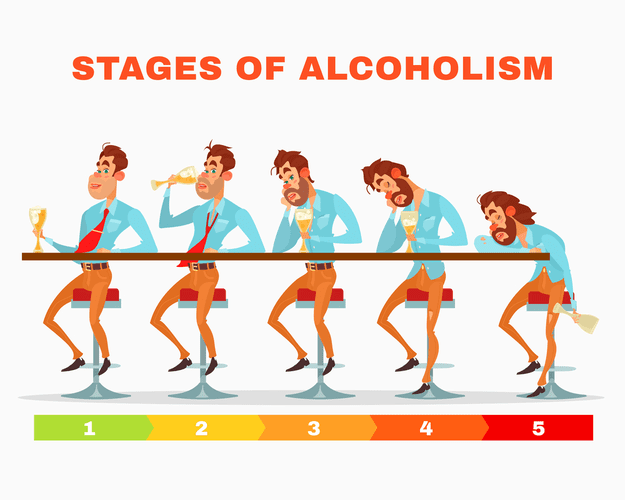While there are differing opinions on whether addiction is a disease or a choice, it is important to recognize that addiction is a chronic, relapsing brain disease that requires medical intervention and support. On the contrary, the conclusion by some of the choice theorists that addiction is voluntary in the sense of ‘under control’ is also disputed due to their over-generalised findings and statements. These broad conclusions are consequently applied to individuals who, as discussed, endure a very heterogeneous condition. For instance, consider the fact that most addicts https://stalkeruz.com/ten-chernobylya/kto-znaet-paskhalki-i-prikoly-v-stalkere.html?page=2 mature out of their addiction by their late twenties and thirties. That still leaves a subgroup of (often severely) addicted individuals for whom addiction may very well be chronic.
- It concluded that neither genetic risk, the role of personal choices, nor the influence of environmental factors differentiated addiction in a manner that would warrant viewing it differently; neither did relapse rates, nor compliance with treatment.
- Thus, he concluded that alcoholism can simply be defined as changes in structure or function of the body due to drinking that cause disability or death.
- Since the second predictor adds no new information, we ought to expect a smaller response to the second predictor than to the first if the dopamine system was itself a reward prediction system.
- If drugs worked like natural rewards, we could expect them to trigger an initial dopamine response to consumption, but an attenuation of this response as consumption is repeated.
- As a result, the behaviour of addicted individuals is considered compromised and disordered in those aspects.
- Disease does not equate non-accountability and assuming certain consequences solely based on a diagnosis is a mistake.
- This is why individuals risk relapse even after long periods of abstinence, and despite a relapse’s potentially devastating effects.
Comment on Heilig et al.: The centrality of the brain and the fuzzy line of addiction
So you’ll say it’s a disease and then they’ll say something like, “But my dad ruined my childhood,” or, “My wife ruined our marriage.” And so, what they mean is you’re telling me I can’t be mad at someone who’s hurt me. We can be mad at people who disappoint us or people who hurt us and there are multiple diseases where that happens. People get mad when their mate gets Alzheimer’s and not because they don’t love their mate but because it’s frustrating and they lose memories and there’s a lot of hurt and things like http://bednoe.ru/eng/eng/koshlyakov.html that.

Q: Is Addiction a Brain Disease or a Moral Failing? A: Neither

Not all individuals with a SUD are addicted to the drug in question, but a subgroup are. At the severe end of the spectrum, these domains converge (heavy consumption, numerous symptoms, the unambiguous presence of addiction), but at low severity, the overlap is more modest. The exact mapping of addiction onto SUD is an open empirical question, warranting systematic study among scientists, clinicians, and patients with lived experience.
Free Healthbeat Signup
- As problematic as the consequences can be in someone’s life, the process can, through effort, be reversed.
- There may be a fact of the matter whether and when addicts suffer from a genuine impairment of agency.
- Dyslexia may have a genetic basis, but it seems wrong to say that our hunter-gatherer ancestors suffered from dyslexia prior to the invention of writing.
- Evidence of generally intact decision making does not fundamentally contradict addiction as a brain disease.
- The ambiguous relationships among these terms contribute to misunderstandings and disagreements.
- In this article, I have focussed on the concept of addiction in order to highlight and overcome some confusion and controversy regarding the addiction-debate.
The neuroscientists and their allies have mistaken some necessary conditions of the disorder with the disorder itself1. Notwithstanding this claim, there is, nevertheless, a strong case for saying that addiction is often a disease. Restoring addicts to their social contexts does not require us to accept the view of addiction to which the neuroscientists oppose themselves, the moral model.
Addiction policies should accord with neuroscience, Stanford researchers argue
- And the prefrontal cortex, the area of the brain responsible for rational decision-making, judgment, and control of behavior gets weakened, its connections to other parts of the brain pruned away.
- Thus, as originally pointed out by McLellan and colleagues, most of the criticisms of addiction as a disease could equally be applied to other medical conditions 2.
- It shows that it is not the large amount of addiction research in itself what sets the models apart, but rather their extrapolated conclusions.
- Drugs release two to 10 times the amount of dopamine that natural rewards release.
- That’s because the medical profession had largely abandoned its duty to take care of people with addiction.
This is in important ways different from the meaning of compulsivity as commonly used in addiction theories. In the addiction field, compulsive drug use typically refers to inflexible, drug-centered behavior in which substance use is insensitive to adverse consequences 100. Although this phenomenon is not necessarily https://livestones.ru/how-to-properly-respond-to-rudeness-how-to-resist-and-how-to-deal-with-it-rudeness-is-what.html present in every patient, it reflects important symptoms of clinical addiction, and is captured by several DSM-5 criteria for SUD 101. Examples are needle-sharing despite knowledge of a risk to contract HIV or Hepatitis C, drinking despite a knowledge of having liver cirrhosis, but also the neglect of social and professional activities that previously were more important than substance use. While these behaviors do show similarities with the compulsions of OCD, there are also important differences. For example, “compulsive” substance use is not necessarily accompanied by a conscious desire to withhold the behavior, nor is addictive behavior consistently impervious to change.

